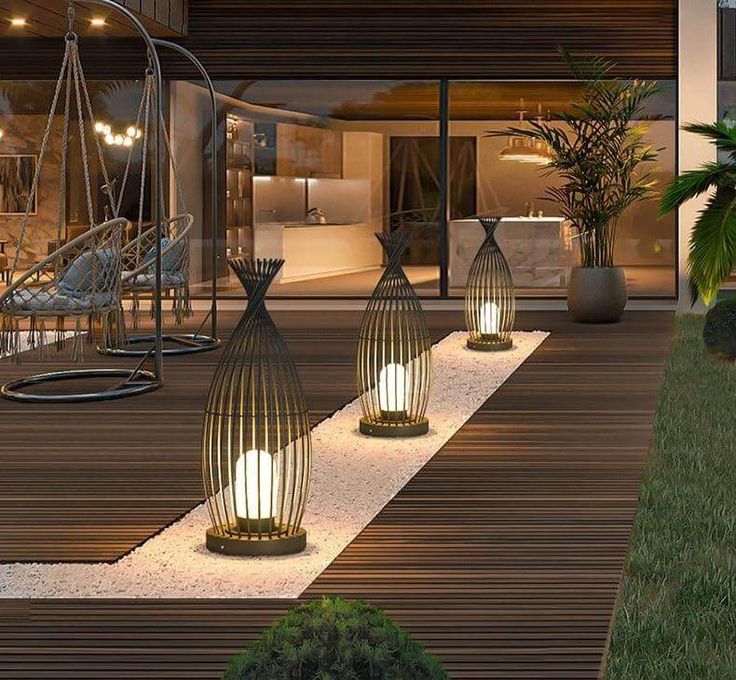Should You Leave Your Porch Light On at Night?
When the sun sets, the question of whether to leave your porch light on at night often arises. It's a common debate with valid points on both sides. Understanding the pros and cons can help you make an informed decision that balances home security, energy consumption, and neighborhood harmony.

Pros of Leaving Your Porch Light On
Enhanced Security
One of the primary reasons homeowners choose to leave their porch light on at night is to deter potential intruders. A well-lit entrance can make it harder for burglars to approach undetected. Additionally, it increases the effectiveness of surveillance cameras, allowing for clearer footage if any suspicious activity occurs.
Safety for Residents and Visitors
A lit porch helps prevent trips and falls, especially for those arriving home late or for guests unfamiliar with your property. It ensures safe navigation, reducing the risk of accidents on your doorstep.
Community Safety
An illuminated neighborhood generally experiences lower crime rates. When many homes maintain their porch lights, it creates a well-lit environment that can discourage criminal activity. This shared sense of vigilance can foster a safer community.

Cons of Leaving Your Porch Light On
Energy Consumption
Keeping your porch light on all night increases your electricity bill. Over time, this can become a significant expense. Additionally, higher energy usage contributes to a larger carbon footprint, impacting the environment.
Light Pollution
Excessive nighttime lighting can disrupt natural wildlife patterns and may be a nuisance to neighbors. Light pollution is an increasing concern, affecting not only the environment but also the quality of life for those living nearby.
False Sense of Security
While a porch light can deter some intruders, it might also give a false sense of security. Relying solely on lighting without other security measures can be risky. Furthermore, a constantly lit porch might indicate an unoccupied home, potentially attracting burglars who target empty properties.
Alternatives to Leaving the Porch Light On
Motion-Sensor Lights
Motion-sensor lights are a practical alternative, providing light only when movement is detected. This not only conserves energy but also startles potential intruders, making them an effective security measure.

Smart Lighting Systems
Smart lighting systems offer remote control via smartphone apps, allowing you to turn lights on or off from anywhere. You can also schedule lights to operate at specific times, combining convenience with security.

Solar-Powered Lights
Solar-powered lights are both environmentally friendly and cost-effective. They harness energy from the sun during the day and provide illumination at night without increasing your electricity bill.

Neighborhood Watch Programs
Active participation in neighborhood watch programs can enhance security without relying solely on lighting. A vigilant community where residents look out for each other can be a strong deterrent to crime.
Best Practices for Porch Lighting
Use Timers
Setting timers for your porch lights ensures they operate only when needed. This can reduce energy consumption and maintain security.
Combine with Other Security Measures
Enhance your home’s security by combining porch lighting with cameras, alarm systems, and robust locks. This multi-faceted approach offers better protection than lighting alone.
Consider LED Bulbs
LED bulbs are energy-efficient and have a longer lifespan than traditional bulbs. Using LEDs for your porch light can significantly reduce energy usage and costs.
Shielded Fixtures
Opt for shielded light fixtures to direct illumination downwards, minimizing light pollution and its impact on your surroundings.

Conclusion
Deciding whether to leave your porch light on at night involves weighing the benefits against the drawbacks. Enhanced security, safety for residents, and community protection are strong reasons to keep the light on. However, the costs in energy consumption, potential light pollution, and the risk of a false sense of security cannot be ignored. Exploring alternatives like motion-sensor lights, smart lighting systems, and participating in neighborhood watch programs can offer balanced solutions. Ultimately, the best approach depends on your specific needs and circumstances. Making an informed decision will help you keep your home and community safe while being mindful of energy and environmental impacts.

 English
English Spanish
Spanish German
German French
French
